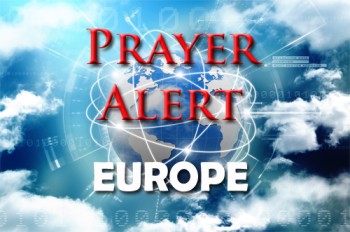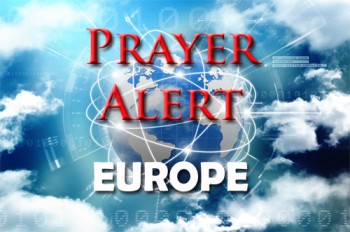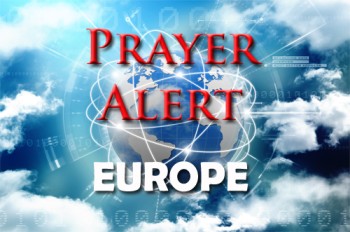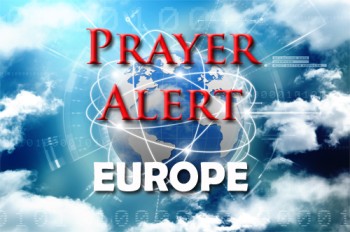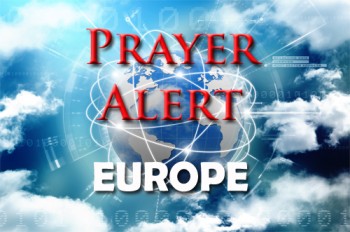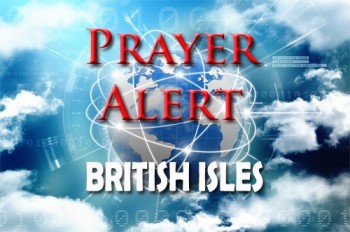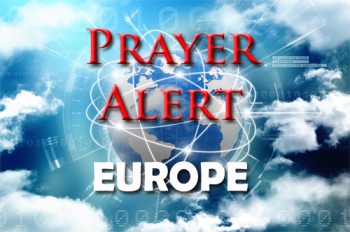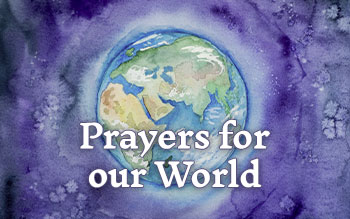Displaying items by tag: Romania
Romania: pro-European wins presidential election
Nicusor Dan, the liberal and pro-European mayor of Bucharest, has defeated far-right nationalist George Simion in Romania’s presidential run-off, securing 54% of the vote. His victory followed months of political upheaval, including a contested earlier election annulled over alleged Russian interference. Despite Simion’s strong support from Romanians abroad and his alignment with banned candidate Calin Georgescu, Dan prevailed with broad domestic backing. Supporters praised his anti-corruption platform, EU alignment, and commitment to Ukraine. Jubilant crowds celebrated in Bucharest after results confirmed his win. Many voters viewed him as a stabilising force in contrast to Simion’s nationalist, anti-EU rhetoric. International leaders, including those from Moldova and Ukraine, welcomed Dan’s win as a reaffirmation of Romania’s European path. Nonetheless, Simion’s strong showing reveals significant dissatisfaction, especially among Romanians abroad, signalling ongoing political tensions that Dan must now work to heal.
Romania: unexpected result in first round of presidential election
Unexpectedly, the presidential election in Romania has seen nationalist independent Calin Georgescu leading the first round. A 62-year-old expert in sustainable development, he calls for a Romania based on small-scale organic agriculture, Christian values, and national sovereignty. His platform, similar to that of Robert F. Kennedy Jr, emphasises self-reliance and reduced dependence on international alliances. Georgescu’s rise is partly attributed to his pledge to ‘restore Romania’s dignity’ and challenge perceived subservience to organisations like NATO and the EU. His criticism of the US-backed missile shield at Deveselu, which he calls a ‘diplomatic embarrassment’, echoes the Kremlin narrative, raising concerns among Western allies. If elected, he could alter the country’s foreign policy and reshape its political landscape.
Romania: further investigations of Andrew Tate’s activities
The authorities have intensified their investigation into internet influencer Andrew Tate, who faces serious charges, including human trafficking, sexual exploitation of minors, and money laundering. Recently, masked police conducted raids at his property near Bucharest, as part of an ongoing probe by Romania's anti-crime agency. Tate, along with his brother Tristan and two Romanian women, were arrested in 2022 and have since been formally indicted. While they have consistently denied all allegations, claiming a lack of evidence and a political conspiracy, they remain under strict legal restrictions, including house arrest and a ban on leaving the country. The case has garnered significant attention due to Tate's divisive online presence, where he promotes misogynistic views to millions of followers: he has already been banned by various social media platforms. The trial's start date is yet to be determined, following a lengthy preliminary legal process.
Romania: prayer needs
A legacy of brokenness endures from the days of Ceausescu’s regime. Every kind of social evil came to fill the moral space left after Communism ended. People struggle with substance abuse, prostitution, human trafficking, and abuse of children. Deep corruption led to economic instability and widespread unemployment. Membership in the EU has helped push Romania further along the path of economic progress and stability. Pray for leadership that has wisdom to follow the right path, and integrity to establish right policies. Romania is one of the world’s most Christian nations by percentage, but it is difficult to see this in society. Communism’s atheistic worldview persists. Weak faith, hypocrisy, and slandering other denominations cause problems for all Christian groups. Christ is not glorified and the Church is not built up. Church members and clergy mix faith with folk religious practices or the occult. Churches neglect poor people.
Romania: Catching sex traffickers
Praise God that in Romania the International Justice Mission (IJM) workers have seen many answers to their prayers. Specifically - IJM Romania has been receiving an increase in referrals from law enforcement. Training conducted by IJM has been a great success with positive feedback from police and prosecutor participants. There are continued strong and engaged partnerships between IJM Romania and the Prime Minister's Office, Ministry of Justice, police, prosecution offices and the Anti-Trafficking Agency. IJM Romania and the Orthodox Church have seen good progress in their collaboration. Please continue to pray for their work with churches, including engagement with the Evangelical and Catholic Churches and for more fruit to come from partnerships with public justice agencies.
Helping Europe's poor cope with Covid
The Covid-19 pandemic will increase the number of deprived people, and make it harder for those who are already struggling. Often they cannot afford to pay rent or utility bills, keep homes warm enough, eat good quality food, run a car, own a washing machine or TV, or pay for a telephone. In 2019, 5.6% of the EU’s population - 24 million people - found themselves in this situation. The risk of increased poverty is especially high for young people, those with low levels of education, and single-parent families, especially those headed by women. The highest levels of severe deprivation in the EU last year were in Bulgaria (19.9%), Greece (15.9%) and Romania (12.6%). Portugal also has over 2 million people in poverty or social exclusion, and unemployment is set to double in 2020.
Brexit uncertainty halts anti-trafficking work in Glasgow
A partnership between Romanian police and Glasgow Airport aimed at tackling human trafficking more effectively has been suspended. Flights between Romania and the UK have been identified as high risk for trafficking. Romanian officers had been travelling to Scotland and London to deal with the ‘high-risk’ flights from their country, as part of a collaboration described in an inspection report as ‘extremely useful’. Inspectors were told as long ago as February that the Scottish arrangement with the Romanian police had been suspended. Staff believed that this was due to the uncertainty caused by Brexit, but the Glasgow safeguarding and modern slavery team was hopeful that it would recommence at some point.
Romania: challenges for prayer
A legacy of brokenness endures from the days of Ceausescu’s regime, a moral vacuum filled with every kind of social evil. Substance abuse, prostitution, pornography, human trafficking, and challenges to child welfare are widespread. Romania has one of the highest abortion rates in the world, with three or more abortions for every child born. Poverty is still common, with widespread unemployment and economic instability, caused to a large degree by rampant and entrenched corruption. Divisions in government reduce its effectiveness; major strides forward are needed in its legal, education and health care systems as well as police and local administrations. Pray for leadership to have the wisdom to chart the right path and the integrity to implement the right policies. Few pastors have a theological library. Pray for Christian publishing houses and distribution networks to establish a viable, indigenously-funded Christian literature ministry and for more locally written material to be available.
Europe: Alliance for Christ Newsletter
During the European Trumpet Call worship and intercession conference at the beginning of September 2015, in Timisoara (Romania), the Lord encouraged the intercessors who had gathered together from many European nations with the word from Isaiah 62:4 'No longer will they call you Deserted … but you will be called Hephzibah (Delight is in Her) and your land Beulah (Married)'.
Then, in a prophetic act on behalf of our continent, we broke off the old anti-christian covenants and as partakers in the covenant and promises for Israel, through Christ, we made a new covenant with the Lord and re-named Europe 'Beulah' (Married). Directly after that, the great flood of refugees began to pour into Europe and since then we have been experiencing shakings in the EU at all possible levels in life, nature, society, politics and in the Church.
'Look at the nations and watch and be utterly amazed. For I am going to do something in your days that you would not believe, even if it were told you.' (Habakkuk 1:5)
The Lord is using these present shakings within the European nations and the EU for His purposes. It is still His desire for all men to be saved and come to the knowledge of the truth and that we (the Church) can live in godliness and holiness and, since our lives and those of our families and churches are governed by those in authority, we are urged first of all to pray for them (1 Timothy 2:1-4).
European Union
Let us thank the Lord for the results of the European Parliament elections! A great transition is in progress. Around two thirds of the Members of Parliament will be replaced and new alliances need to be formed. Subsequently, many executives in the EU administration will also be replaced.
The following key positions are to be newly elected:
- • President of the EU Parliament – by the EU Parliament
- • President of the EU Commission – by the EU Parliament
- • President of the EU Council – by the European Council
- • EU High Representative for Foreign Affairs – by the EU Commission
- • President of the European Central Bank – by the European Council
Let us pray that as many God-fearing people as possible will be elected into office – people who have a sense of justice, wisdom and integrational strength, and who also respect and understand the cultural diversity of the nations within the EU.
Also pray that the powers striving to subjugate nations by a centrally controlled EU Empire, will be broken.
The idea of creating a United States of Europe on the model of the USA is unrealistic. The USA was created by people from many different nations – people who left their native countries for distant America and formed a new state structure with a shared language and shared core values.
The influence of God-fearing men and women in the founding phase was immense and so, within a relatively short time, a new, US American identity emerged with people who no longer thought of themselves as being British, German, Italian, French etc., but as being citizens of the USA.
Europe is very heterogeneous in that it is made up of many nations, each with their own language and culture and some with a history going back for up to thousands of years. The size of these nations and also their economic strength varies tremendously between the north and south, and the east and west of Europe.
The smaller and economically weaker nations have long perceived the EU as an 'Empire' in which the weaker nations are dominated by the stronger ones (especially by Germany) and the EU administration. They fear that they might lose their identity and freedom and that they will have to pay a high price for any advantages the EU has to offer.
This is something the Lord cannot bless. If the EU does not want to disintegrate, it must find new ways of providing regional development aid that promotes peace and not disunity between great and small and poor and rich. In addition there needs to be a clearer definition and agreement between common EU legislation and national sovereignty.
Above all, the nations of the EU need a fresh encounter with God and the gospel of the Lord Jesus Christ. Fervant prayer avails much!
Brexit
Just recently, we celebrated the founding of the German State, seventy years ago, and the seventy-fifth anniversary of D-Day. We were reminded of what it cost the British and Americans, along with their Allies and the resistance movements within the occupied nations, to liberate Europe and establish peace.
Great Britain is the only country in Western Europe that successfully resisted the German war machine. Around 330,000 Britons lost their lives. History testifies to the miracles that gave advantage to the British and their allies, and to the importance of the nationals days of prayer called by the King, as well as the intercession of Rees Howells, and the Bible School of Wales.
After the war, the British did not seek revenge. Along with the Americans, they helped to rebuild Germany with a new constitution as a Federal Democratic Republic. Thanks to the strong Christian Values held at that time by the British and Americans, Germany was released from a huge debt, was reconciled with France, preserved its sovereignty and, eventually, was re-admitted to the community of nations.
Bearing these facts in mind, and considering the friendship built up over the last decades, it is high time for a change in policy regarding Britain leaving the EU. The present attitude of the EU leaders is: 'We will no longer negotiate and if the British do not want to accept the presented agreement, then we will treat them like the rest of the world, not even granting a transition phase.' In the light of history and for continued friendship, such an attitude is arrogant and disrespectful.
Let us pray for a positive change within the EU leadership and administration regarding Brexit.
Let us also pray for the forming of the new British government with new vision for the future and sound judgment to protect the sovereignty of Great Britain, while defining its future synergy with the EU.
Evangelisation
Germany and Europe need to be reached again with the gospel of Jesus Christ. The Lord is mobilising a new generation of evangelists along with His Church. This was the main emphasis at a conference held by Christ for all Nations (CfaN) at the end of May, in Hamburg.
Over four thousand attended, including many young people, when the evangelist, Reinhard Bonnke‚ passed on the baton to the younger generation. This new movement needs to be accompanied by prayer!
March for Jesus
The March for Jesus movement is presently experiencing a new awakening. The Lord is encouraging Christians in several European cities to go on the streets and publicly profess His name.
The next March for Jesus will be held in Munich on the 28th of July, under the leadership of Chad Chambers and ‚Europe Ablaze’ team. More information and registration under www.europeablaze.tv
Yours in Christ
Berthold Becker
EU Warns Romania Of Legal Steps Over Moves To Weaken Rule Of Law
The European Commission has threatened it will take legal action against Romania unless it reverses moves to cripple the independence of its courts and hinder the fight against corruption.
The commission, which is the European Union's executive body, has repeatedly warned that measures adopted by the ruling Social Democrats -- including moves to reduce statutes of limitation that would close some ongoing corruption trials -- are reversing years of anticorruption reforms and weakening the rule of law.
Spokesman Margaritis Schinas told a news briefing in Brussels on May 13 that Commission First Vice President Frans Timmermans had sent a warning letter to Romania's government on May 10.
"The main concerns relate to developments interfering with judicial independence and the effective fight against corruption, including the protection of financial interests of the EU and particularly to the recently adopted amendments to the Criminal Code that create a de facto impunity for crimes," Schinas said.
"Possible legislation to allow extraordinary appeals would further aggravate the rule-of-law situation," he added.
The commission has already put Hungary and Poland under a special "rule of law" framework over steps to tighten state control over the courts, media, academic institutions, and advocacy groups. This could theoretically lead to the eventual activation of the EU's Article 7 -- the so-called "nuclear option" -- resulting in a suspension of their voting rights in the EU.
Schinas said similar action would be taken against Romania unless it addressed the EU's concerns.
Schinas also signaled that Romania's becoming a member of the EU's passport-free Schengen travel area -- for which Bucharest has been pushing for years -- might not happen if the government ignored the rule-of-law concerns.
A senior EU diplomat, speaking to Reuters on condition of anonymity, said penalties could include loss of EU funds.
"The Romanian coalition government is systematically undermining the rule of law for the sole purpose of saving corrupt political leaders from prison," the diplomat said.
"If Bucharest continues on this dangerous path, taking part in the Schengen travel-free area will remain a pipe dream.
"Infringement of the rule of law will endanger the distribution of more than 30 billion euros [$33.7 billion] in cohesion funds earmarked for Romania in the draft EU budget for the years following 2021," the diplomat told Reuters.
Pray: That the integrity of the Romanian judicial system will be maintained.
Pray: That proposed legislation that undermines the rule of law will be overturned.
With reporting by Reuters, AFP, and RFE/RL's Romanian Service
